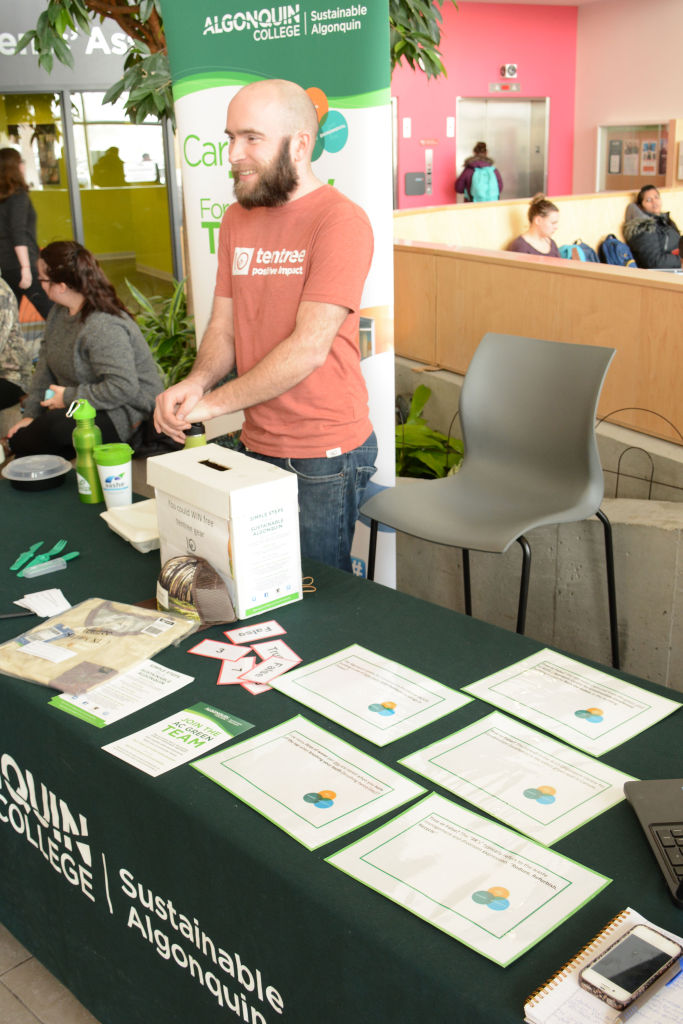
Turn off the lights, unplug, power down and head over to residence building.
On March 19, Algonquin’s Green Team and a group of volunteers from the General Arts and Science program are asking you to join them for some Earth Hour activities.
Glow-stick Jenga and board games by candlelight, as well as discussions around topics of sustainability are all on the docket for the event.
This is the first year the Green Team has been active and it has been successful in informing students on the practices they can adopt to lead more sustainable lives.
“You guys are more direct, which I like,” said Michelle Echlin, a first-year baking and pastry arts student.
Not only can students practice eco-friendly habits in the daily choices they make, there are also opportunities to learn sustainability practices within their respective fields of study.
“It’s why I took the program,” said Jason Juurlink, first-year bachelor of building science student and member of the Green Team.
There are currently 10 students involved in the peer-to-peer based learning group known as the Green Team, yet only one of them is currently studying in an environmentally focused program.
Although construction and building science programs seem to be obvious fields in which to implement environmental sustainability practices, there are sustainability measures at work within every department of the college.
Algonquin employed a system of Vocational Learning Outcomes (VLOs) in 2012 that incorporated curriculum sustainability assessments in 16 courses. To date, VLOs are incorporated in all Algonquin programs.
“The add is that the majority of students coming through the doors will have some understanding of sustainability by the time they complete their program,” said Sarah Dehler, sustainability coordinator for the Sustainable Algonquin Steering Committee.
There are also back-end sustainability practices that are being carried out across Algonquin. For example, one issue that has seen growing concern is the college’s composting service.
Although the campus is Styrofoam-free and utilizes compostable containers in each of its food service venues, it does not have a student accessible composting system in which to recycle these containers properly.
“There are many steps that would have to be taken to prepare for that to be implemented,” said Dehler.
The culinary program is currently using a composting plan to recycle scraps and waste while teaching composting practice, as is The Fix located in the ACCE building.
“You have faculty members doing interesting things all the time. They’re really just down on the grassroots and said ‘this is important,’” said Dehler.
The AC Green Team is funded by the environmental education account in the bank of the Sustainability Algonquin Steering Committee. The committee is halfway through it’s five-year mandate of which the Green Team is included. The mandate focuses on not only the environmental sustainability of Algonquin, but also the social and economic sustainability of the practices it lays down.
“We’re very hopeful that this group will have a form to be able to continue into next year,” said Dehler.
The hope for the future of Green Team and its presence on Algonquin campus is to “engage the students in the process and get them thinking about it so they can change their behaviour,” said Juurlink.


